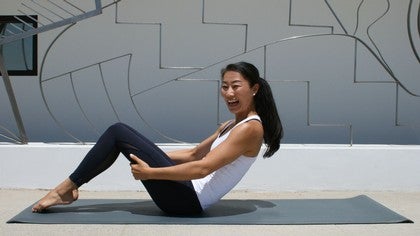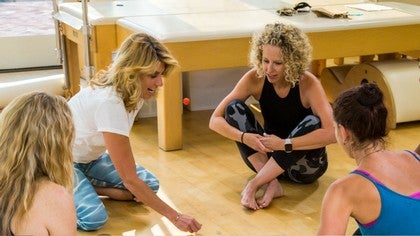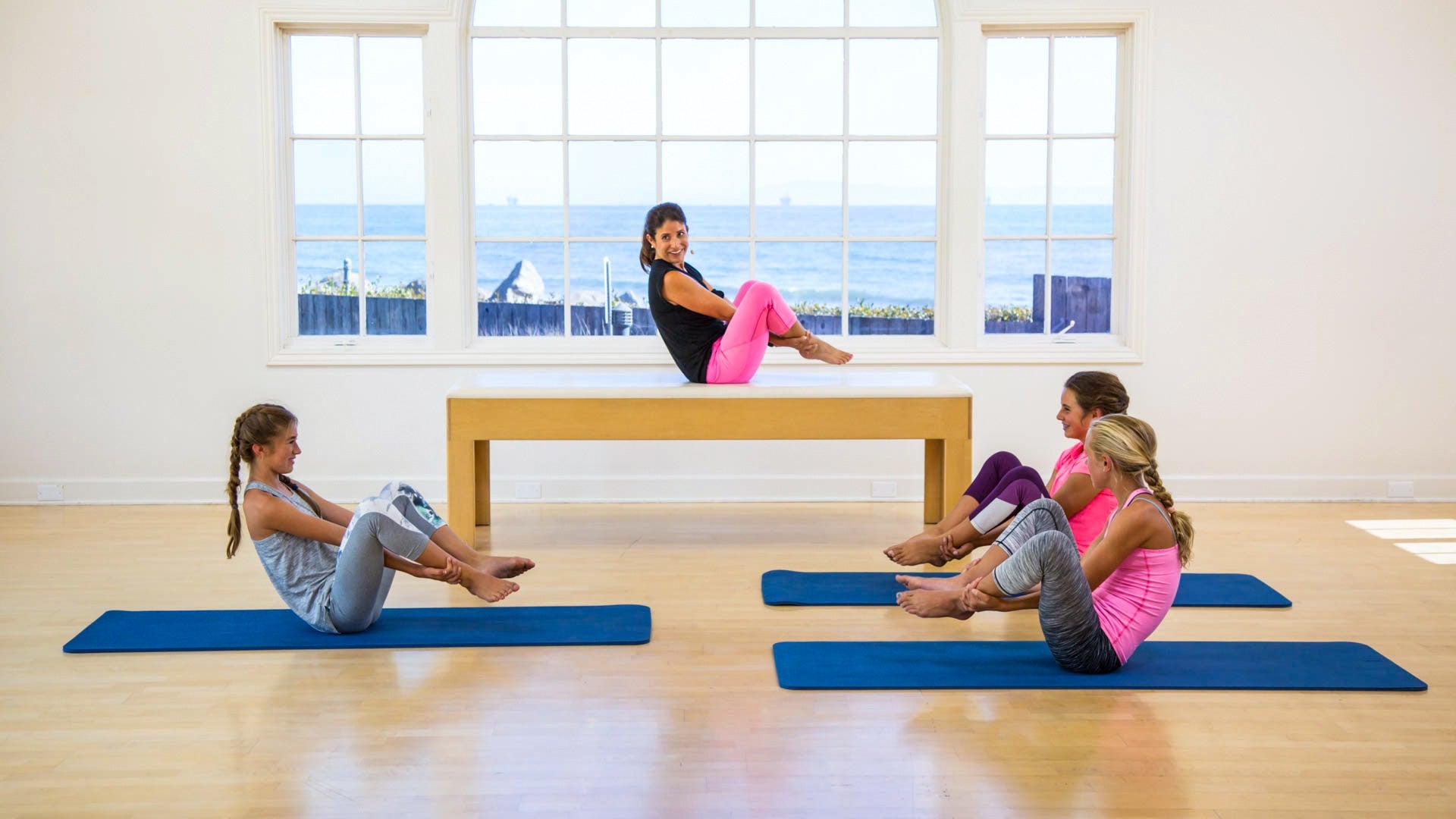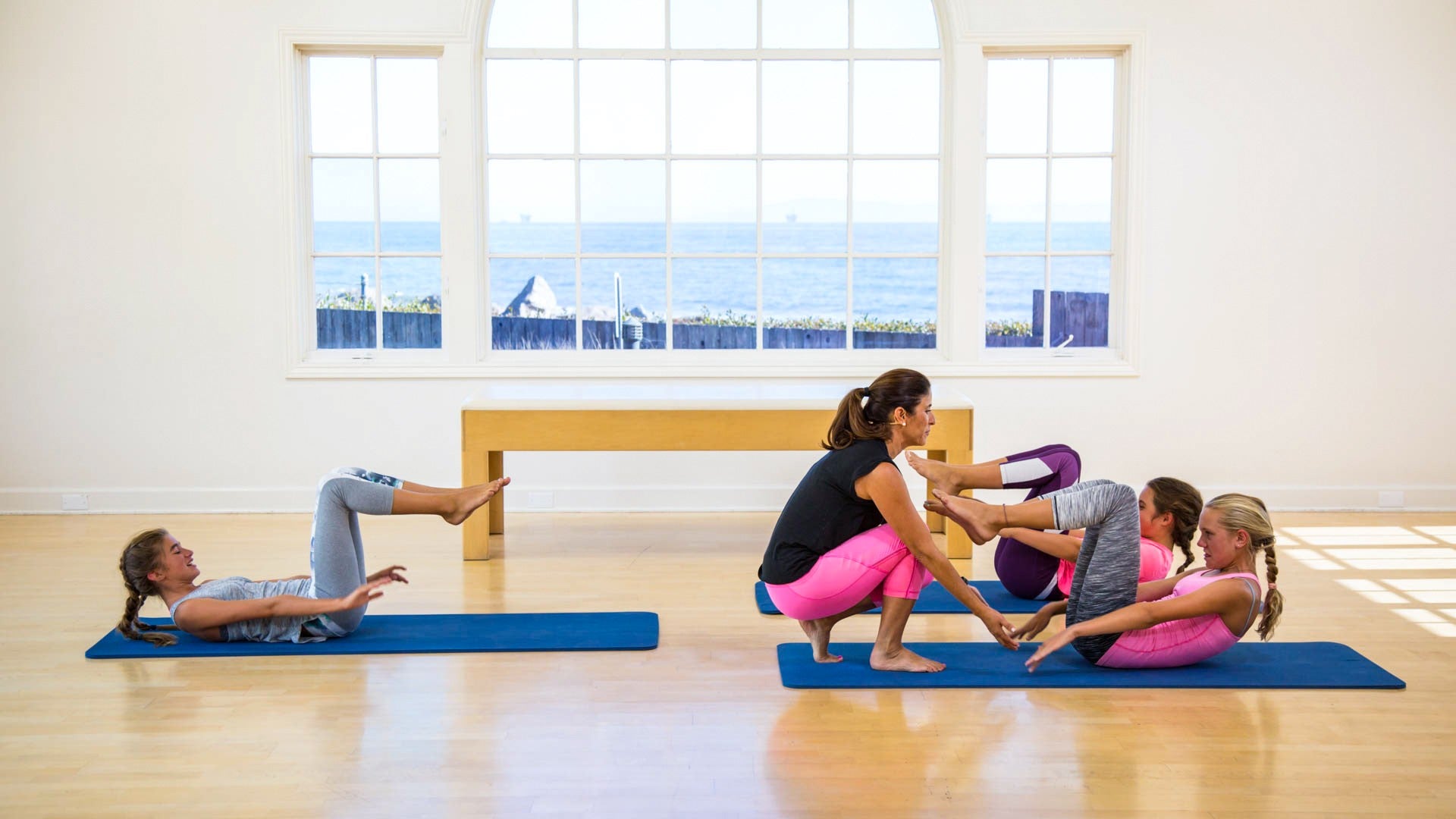
7 Reasons Why Kids Should Do Pilates
1. Pilates teaches mindfulness.
The six Principles of Pilates - Centering, Concentration, Control, Precision, Breath, Flow - demand being present in your movement and your body. By following these six Principles, children learn to calm themselves with breathing and to clear their minds with intention. With practice, they are able to shift focus from their day at school or an argument with a friend to focus on their movements and to a more positive mindset.
2. Pilates empowers.
When kids feel strong mentally and physically, they feel they can tackle the world. Because Pilates was designed as a system of exercises of increasing difficulty, it's easy to measure personal progress. As your child performs an exercise with an ease she didn't have the week before, she will develop a sense of accomplishment and confidence. Kids can walk a little taller, figurately and literally, knowing they achieved something at the end of each workout.
3. Pilates teaches body awareness.
When kids are connected to their bodies, they become more aware of how their bodies move and exist in space, or "proprioception." Growth spurts and awkward phases create insecurities that last a lifetime. We all know someone who moves like a bull in a china shop (flailing arms) or someone who is uncomfortable in his own space (hunched shoulders). By using control and precision, kids develop body awareness along with the tools to move confidently and more gracefully through life.
4. Pilates promotes play.
Kids need to move and expend energy! Often, we ask our children to behave like little adults. And while learning to be still is important, children need time to be silly and to let their imaginations run wild. Pilates invites physical and psychological play, making room for creativity, laughter with friends, and space for kids to be kids.
5. Pilates creates connections.
As kids move from childhood into their teenage years, it's important they build foundations for the future. Finding healthy, fun activities with like-minded peers can help kids stay on track, even when social situations becomes harder to navigate. Connections created through Pilates can become lifelong friendships and reinforce values that last a lifetime as well.
6. Pilates facilitates other activities.
Most sports - everything from gymnastics and swimming to baseball and soccer - require a strong core. Pilates exercises focus on strengthening the core as well as stretching and strengthening the whole body, giving kids the physical foundations to perform all their activities better and with more confidence. Plus, the harder kids play, the higher the likelihood of injury. Pilates can help stabilize joints by strengthening the muscles surrounding them while lengthening tight muscles, all of which can help prevent injury and help rehabilitate injuries as well.
7. Pilates is for life!
Pilates is an exercise method that once learned cannot be forgotten. Unlike running or other hard-on-the-joint regimens, Pilates can be practiced at every age - even into our 90s. What's more, lifelong habits start early. Why not start with a healthy one? Beginning a Pilates regimen at a young age will give kids a head start on a long and healthy life.
Comments


You need to be a subscriber to post a comment.
Please Log In or Create an Account to start your free trial.


















